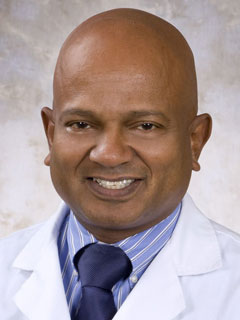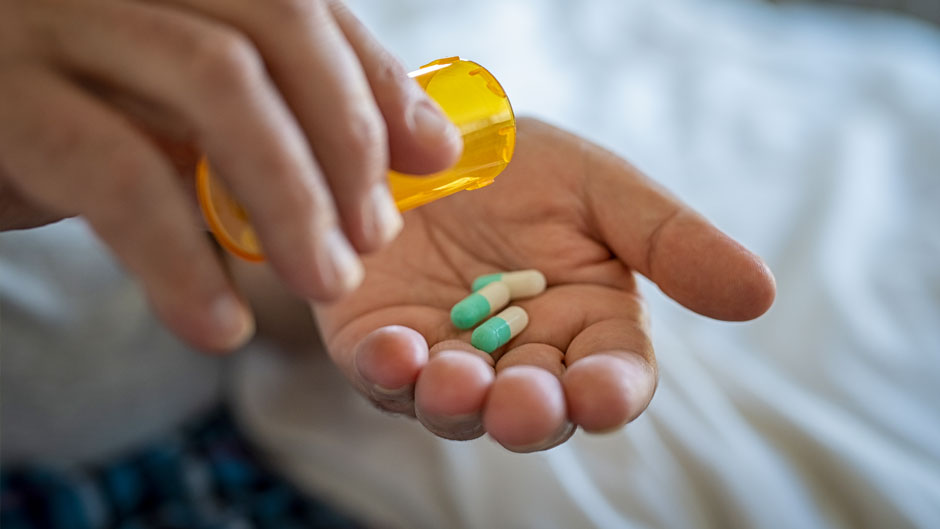Could getting your flu shot within weeks of the COVID-19 vaccine improve the protection of either vaccination?
And might medications used to treat other illnesses help people with milder cases of COVID-19 recover faster and more comfortably at home?
These are two questions that researchers at the University of Miami Miller School of Medicine are hoping to help answer in the next few months. They are now recruiting participants from the community for two clinical trials funded by the National Institutes of Health (NIH) that will help doctors learn more about how to treat less severe forms of COVID-19 and to examine if there are strategies to improve the strength of vaccinations.

In the first trial focused on vaccines, the University is looking for at least 150 people who have not received a flu shot this year and who also have not gotten a COVID-19 vaccine in the past six months. During the Legato study, participants will receive a flu shot and a COVID-19 vaccine from Johnson & Johnson (this could be considered a booster) within 28 days of each other. Then, researchers will monitor the participants’ health and safety to learn whether getting the vaccines within a month of each other improves their effectiveness, as well as whether the sequence of vaccinations impacts their strength.
Previous University research indicates that getting a flu shot may help reduce the severity of COVID-19, but with the new variants circulating today, more clinical research is needed to confirm this data, according to Dr. Dushyantha Jayaweera, a professor of medicine in the Miller School’s Division of Infectious Disease and the University’s site principal investigator on the study. Also leading this study is Dr. Eugene Schiff, director of the University’s Schiff Center for Liver Diseases.
“We are beginning to understand that COVID-19 is not going away; and therefore, we have to be proactive and prepare to vaccinate for both diseases going forward,” said Jayaweera, who is also medical director of the University’s Clinical and Translational Research Services unit and associate director of the Miami Clinical and Translational Science Institute (CTSI). “More people are getting the flu shot now, but nobody is collecting the data. So, we are trying to gather this information to see if there’s any advantage of getting these vaccines close together, and if so, in what order would make them the most advantageous for people?”
A second clinical trial aims to determine whether three existing medications that are approved by the U.S. Food and Drug Administration (FDA)—and are often prescribed for other medical conditions—can also help people recover from mild to moderate COVID-19 faster and prevent them from being hospitalized, Jayaweera noted.
The nationwide study, which is part of a larger effort, called Accelerating COVID-19 Therapeutic Interventions and Vaccines, or ACTIV-6, is looking for participants who are at least 30 years old and have recently tested positive for COVID-19 but are recovering at home. As part of the study, participants will receive a medication, or placebo, in the mail. During the course of the treatment, medical professionals will check in with them through telephone appointments to monitor their health and safety. Participants will also answer short online surveys to determine if the medications are useful.
“Given that COVID-19 has disproportionately affected some minority groups, it is very important that we also recruit minority populations for this study, so that we can also determine if the medicines are effective in these groups,” said Dr. Olveen Carrasquillo, who is leading the study with Jayaweera, and is a professor of medicine and public health sciences, as well as co-director of CTSI.
One advantage to this study is that it does not require any physical contact with physicians or nurses to protect the health of everyone involved, Jayaweera pointed out.
“If effective, these drugs will lower the severity of COVID-19 and offer a very low-cost way of treating COVID-19,” he said. “It could also decrease the health care costs of this pandemic across the nation and the world.”
Jayaweera said that he hopes that local residents will help bolster medical knowledge about COVID-19 by participating in these studies.
“Many studies have shown that people who take part in clinical trials do better [with illness] than those who do not,” he said. “Because there is so much monitoring, these participants experience an extremely high level of care.”
To learn more about the Legato COVID-19 and flu vaccines study, contact the UM Schiff Center for Liver Diseases or call (305)243-4615.
To learn more about the ACTIV-6 study, contact Dr. Jayaweera at (305) 243-5012, (786) 300-6747, or e-mail Activ6@med.miami.edu.

